Hello!
In psychology, there is such a thing as professional deformation. Wikipedia frightens with official language, creating a gloomy image: “Professional deformation is a cognitive distortion, psychological disorientation of the personality, which is formed due to constant pressure from external and internal factors of professional activity and leads to the formation of a specific professional type of personality.”
However, in reality, everything is not as scary as it might seem. Moreover, most likely, each of us, through personal experience, at least once met with manifestations of this 'ailment'. Any professional in his field begins to look at things differently, taking into account the peculiarities of his work.
A person working in the automotive industry pays attention to what others are driving. The cook, coming to a cafe or restaurant, evaluates the dishes served to him. And a person connected with the electronics market will first of all pay attention to what kind of gadget you are using.
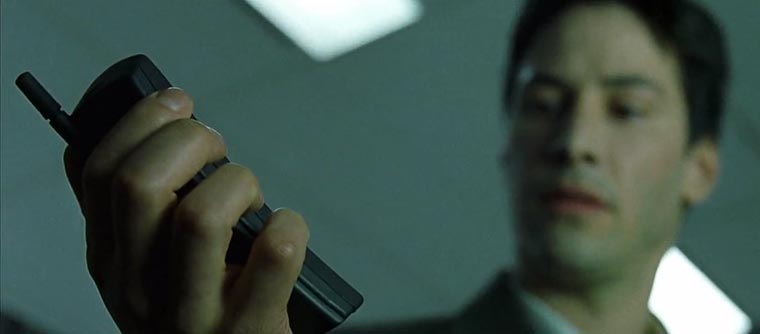
I caught myself thinking that while watching another film, besides the plot outline and acting, I pay close attention to what gadgets the heroes use. I analyze, draw conclusions and safely forget about it until the next appearance of a new gadget in the frame. This happens automatically and does not distract from the main plot.
Despite the second nature of such reflections, it is impossible not to pay attention to the fact that before our eyes is an artificial cinematic world, densely mixed with advertising, otherwise how to explain that all the heroes, without saying a word, use different models of the same manufacturer. Agree, it's very strange.
This is especially striking in films in which the phone turns from an extra into a character – it solves some problems, has some special properties, or allows the characters to gain some advantage. Such protrusion is typical for spy detectives and action films, where, among other things, the hero actively uses gadgets.

Apparently, marketers realized this much earlier than the viewer.
Once – and everyone in their pockets accidentally ended up with devices from the same vendor.
Two – and everyone is in a hurry to get them and show them in the frame.
Three – and the phone helps to save the world, without failing to show off the company logo in the frame.
Here's an example – James Bond. Quite a famous person. Why not make him use Sony (SonyEricsson) phones? Easy.
There should be a paragraph about Pierce Brosnan, and the beginning of the friendship between Bond and SonyEricsson, but I don't like Bond played by Brosnan, so I'll start with Daniel Craig. ?
The company pays a certain amount for advertising, and now a masculine British intelligence agent, with his habits and methods of work, looks more like an inferior saboteur, takes directions of enemies, conducts video negotiations, and also photographs classified information with the help of the then brand new K790i-K800. And then, under tragic circumstances, he becomes the owner of the Sony Ericsson M600 in white. But what a PR …
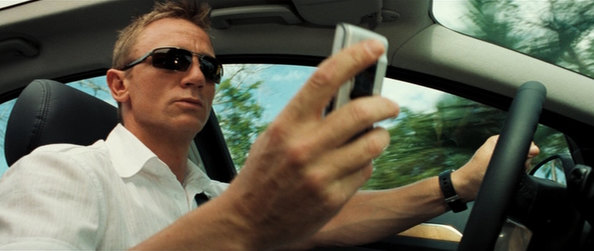
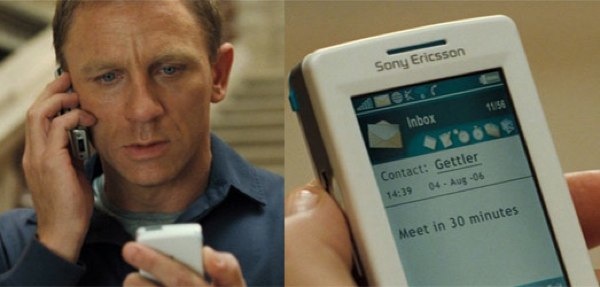
Love for SonyEricsson pursued Bond in the next series of the franchise, 'Quantum of Solace', where the Sony Ericsson C902 took over the role of supergadget.
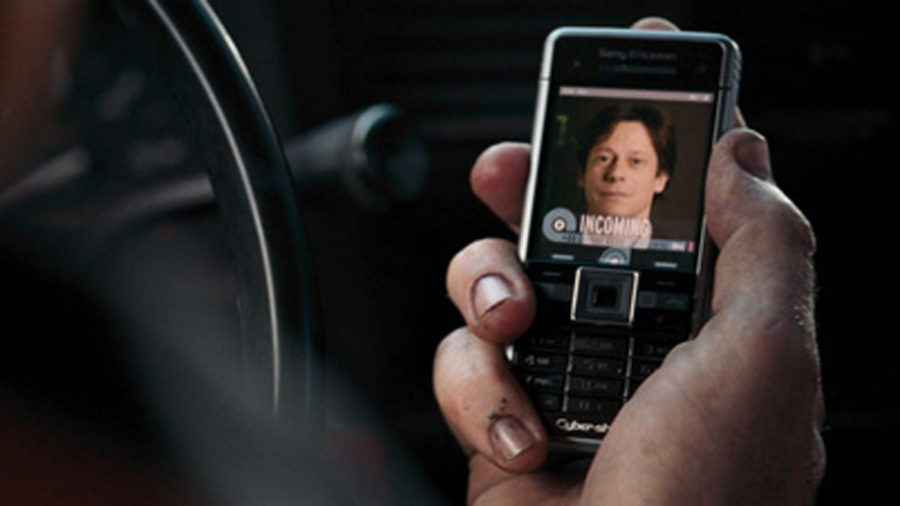
Bond did not betray himself (or rather, the desires of marketers) in the darkest part of Bond, released in 2012 – Skyfall coordinates. Ericsson was no longer there, only Sony remained, which engaged in strange experiments, the result of which was the very controversial Sony Xperia T.
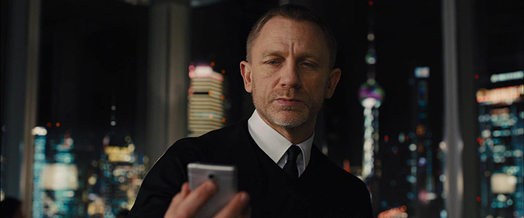
At the time of viewing the picture, I was faced with the dilemma of choosing my next smartphone and already knew everything about this model. And it was all the more interesting to see this model in Bond's hands. I never bought the Xperia T, and the reason is not Bond, but the mediocre characteristics of the model.
But in 2014, something broke in this well-established mechanism – the words of director Sam Mendes and Daniel Craig were made public that the Sony smartphone seems unsuitable for the film, because James Bond, objectively or subjectively, uses only the best technology, and they believe that Sony is not the best phone.
Yes, the Sony Z5 appears in the shot, but occasionally – the agent uses it to contact Moneypenny during a car chase through the streets of Rome. That's all.
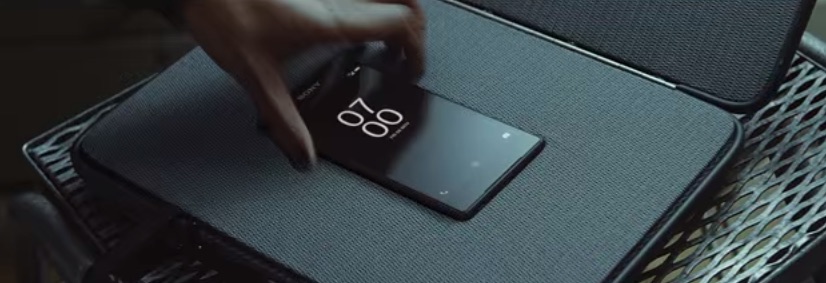
It's hard to say how much such advertising influenced sales, but I had the feeling that in all parts of Bond, except for the last one, there were too many phones in the frame. Rather, the phones had too much airtime.
Not all agents can boast of loyalty to one brand and brand.
For example, Ethan Hunt (Tom Cruise), known to us from the Mission Impossible series of spy thrillers, started out with Ericsson machines (like Bond, right?). Only, either the budgets were not the same, or the product placement this time was not so aggressive, but it is difficult to see these devices in the frame.
But then the American spy suffered – he managed to use devices of several brands in one film, including Nokia, and HTC, and Apple. Apparently, in different parts of the franchise, its creators did not rely on any one brand, but decided to collect 'from the world on a string'. And also, it seems that Nokia paid the most – it is the Finnish phones that often appear in the frame.
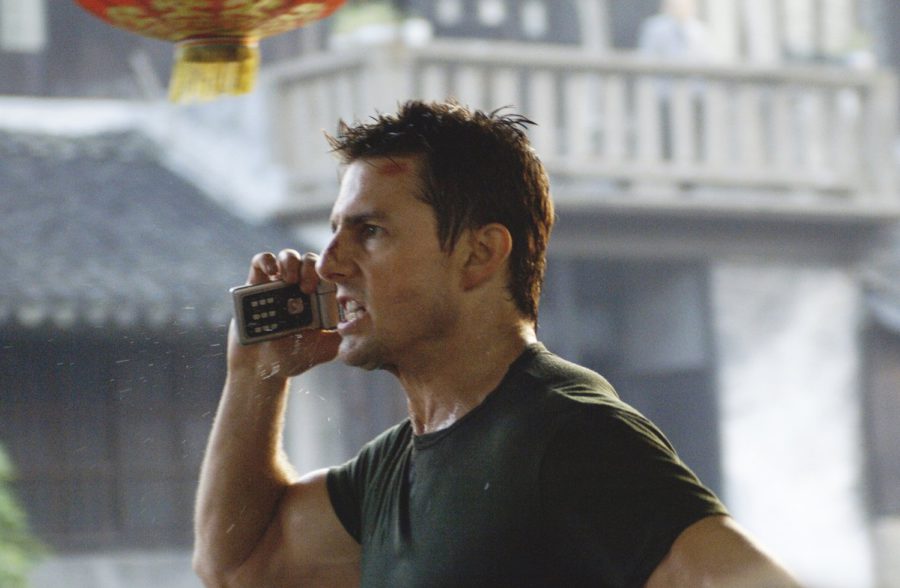
In 'Mission Impossible: Phantom Protocol' Ethan decided on his preferences, with all his spy heart falling in love with the product Apple, which dominates here.
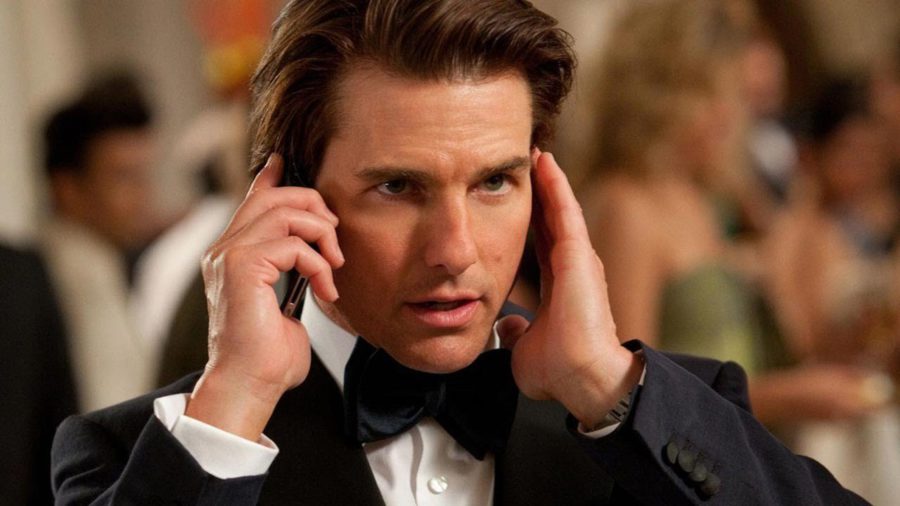
And, it would seem, here it is apple 'van love'.

But no, in the next part 'The Tribe of Rogues' in the hands of a super spy appears, attention, Nokia Lumia 930. What? Nokia again?
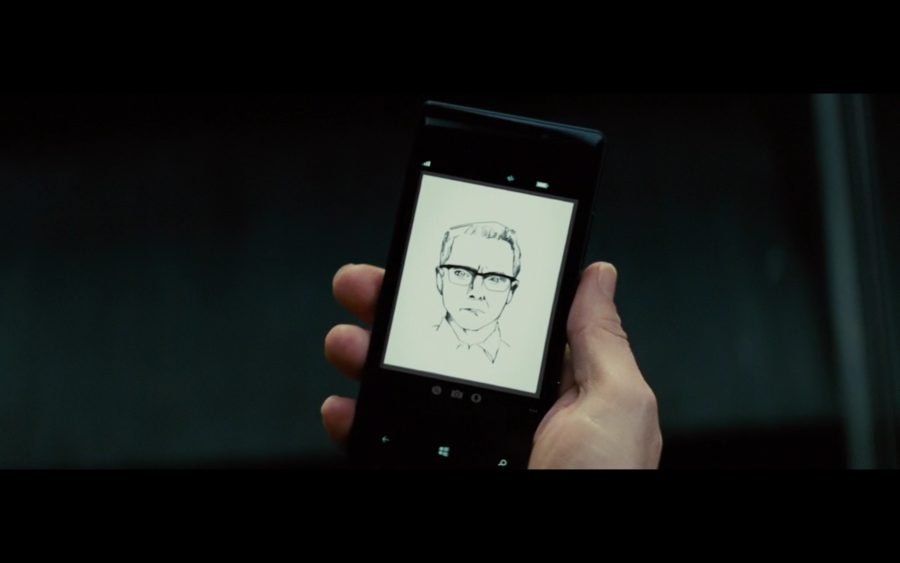
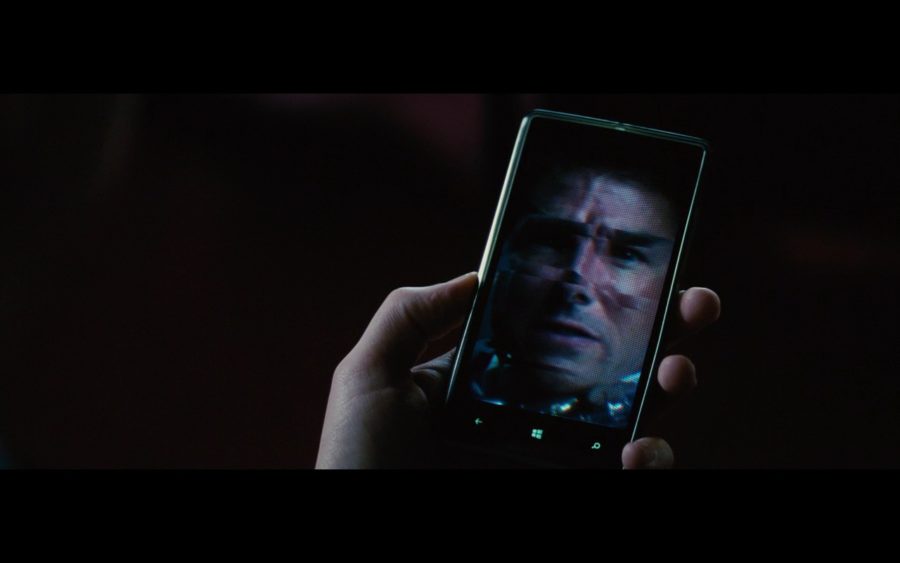
And, no, this is not the same Nokia, this is its homunculus from Microsoft. So that the viewer does not consider it an accident, we are shown a tablet Microsoft Surface.
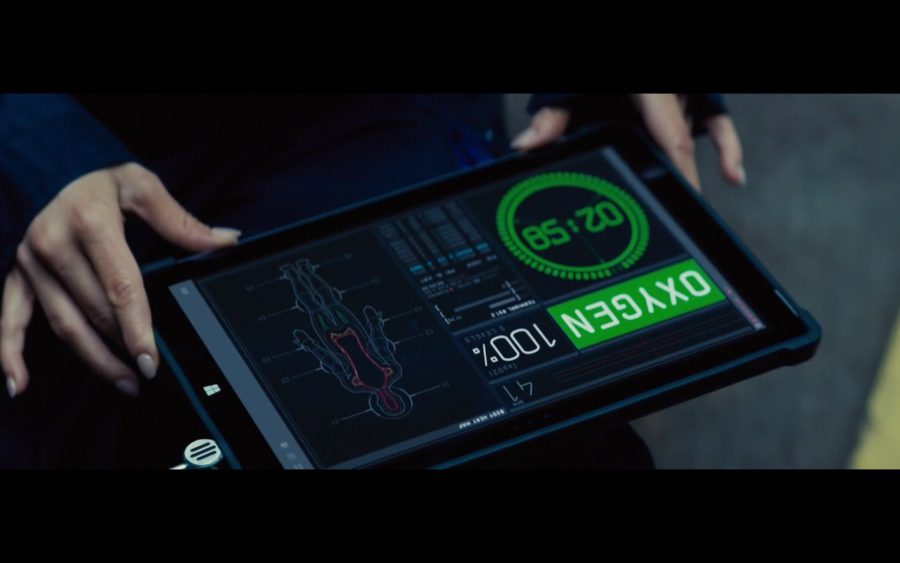
But I didn't watch the last part. Therefore, I can not say anything about her. Tell me in the comments which smartphones Ethan Hunt uses today?
Conclusion
Throughout the existence of such franchises, it is possible to track the development of smartphones, the ups and downs of different manufacturers, which replaced each other, yielding to each other the palm in the market, and hence the place in the hands of the main characters. Yes, this factor did not always reflect the real state of affairs on the market (remember, at least Nokia), but it was still a certain measure of success for companies wishing to show something like that, to surprise.
But with all this, this is what catches the eye – judging by both Bond and Missions, smartphones in the hands of the heroes cease to amaze with technological miracles and are gradually turning into ordinary gadgets, exactly the same as those around the spies.
Perhaps this is due to the fact that today smartphones, even without any spyware, are so technological devices that they do not need additional modules – most of the chips can be implemented simply by installing the necessary software.
Instead of striking the imagination of hardware, such signs of the times as Big Data and global networks are coming to the fore, allowing heroes to get more using ordinary technology. Who knows what awaits us tomorrow. Maybe we will come to a bright technological future in which everyone, if they wish, can become a super spy by simply downloading the necessary program to their phone.
